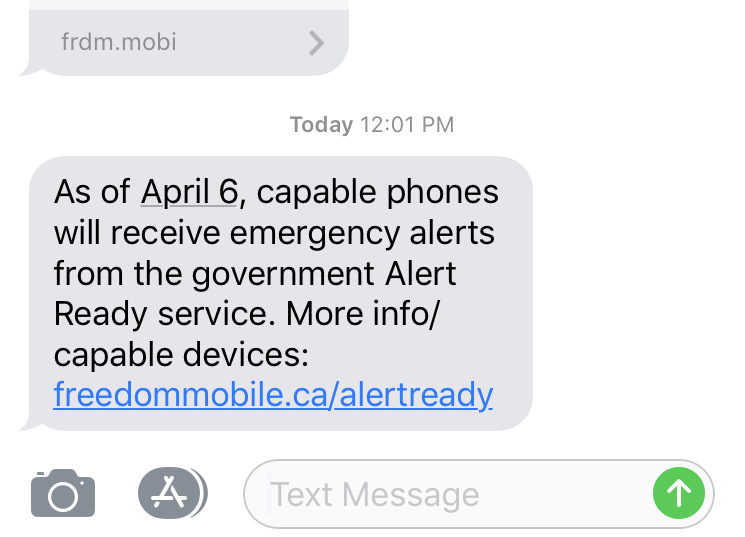British Columbians mobile phones will soon be activated to receive emergency notifications.

The system will go live on April 6, and Emergency Management BC (EMBC) is launching its first province-wide test of the system on May 9 — assuming there is no real-life emergency before then.
EMBC Director of Projects Ian Lightbody says the program will roll out slowly, and only be activated for tsunamis to begin with.
“What we really want to avoid is something like what happened in Hawaii, where we send out an alert inadvertently or mistakenly and cause more harm than good.”

Get breaking National news
In January, Hawaiians were sent scrambling when an emergency alert was mistakenly sent to people’s phones warning of an imminent ballistic missile attack.
WATCH: False alarm: Erroneous alert issued about nuclear missile threat in Hawaii

If there were to be a tsunami after April 6, Lightbody said the new push notifications, along with traditional radio and television alerts, would only be sent to people in the affected areas.
In the longer term, he said the government is looking at activating the system for wildfire evacuations, but it is not clear when that system could be activated.
“We are looking at expanding that to much more alerts in the future, but we wanted to make sure we’ve got everything working right first for the tsunamis.”
Other alerts, such as for natural disasters or terrorist attacks could also one day be covered by the system.
WATCH: Smartphone emergency alert system to launch in B.C.

For now, Amber Alerts will not be sent via phones, but will continue to be broadcast as they have been on radio and TV.
The wireless alerts are a part of the new national Alert Ready program, which was mandated by the Canadian Radio and Telecommunications Commission (CRTC) last year. The regulator gave wireless carriers one year to implement the system.
In order to receive alerts, mobile phones must use the LTE or 4G networks, be alert compatible and within the alert area. They will be broadcast automatically, and at no cost to the user.













Comments
Want to discuss? Please read our Commenting Policy first.